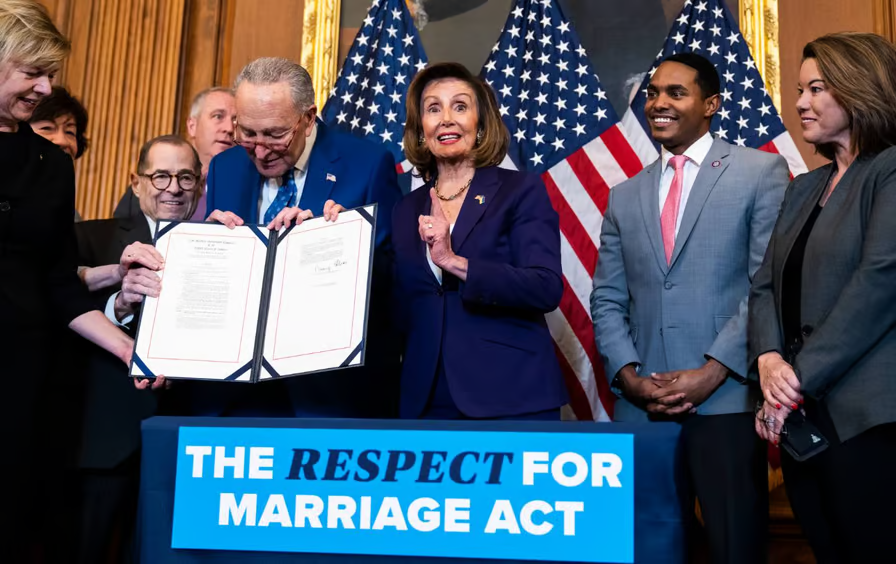January 17, 2023
Is the Respect for Marriage Act a Win for the Right?
By Lisa Herforth-Hebbert
While the legislation was intended as a buttress against Republican attacks on LGBTQ+ rights, activists have criticized the RFMA for including religious liberty exemptions.

Anticipating an increasingly activist Supreme Court and wary of further incursions on LGBTQ+ and other rights, Democrats sprung into action. A unique combination of factors—a lame-duck session of Congress, fear of a future attack on Obergefell v. Hodges, and a turning tide of public opinion on marriage equality—paved the way for the signing of the Respect for Marriage Act on December 13.
But while the legislation was intended as a buttress against right-wing attacks on LGBTQ+ rights, activists have criticized the Respect for Marriage Act for writing Republican religious liberty exemptions into law and focusing on an issue that impacts only a small and wealthy portion of the LGBTQ+ community. While the RFMA provides federal recognition for lawfully conducted same-sex marriages, it does not require any state to issue same-sex marriage licenses, but instead demands that states recognize same-sex or interracial marriages performed across state lines.
If Obergefell were to be overturned, same-sex marriage would likely become illegal in 35 states, the number that currently have same-sex marriage bans on the books. While a couple could theoretically travel to another state to get a marriage license, to later have it recognized by their home state, the Respect for Marriage Act risks creating a two-tier system of marriage equality in lieu of total federal protection.


